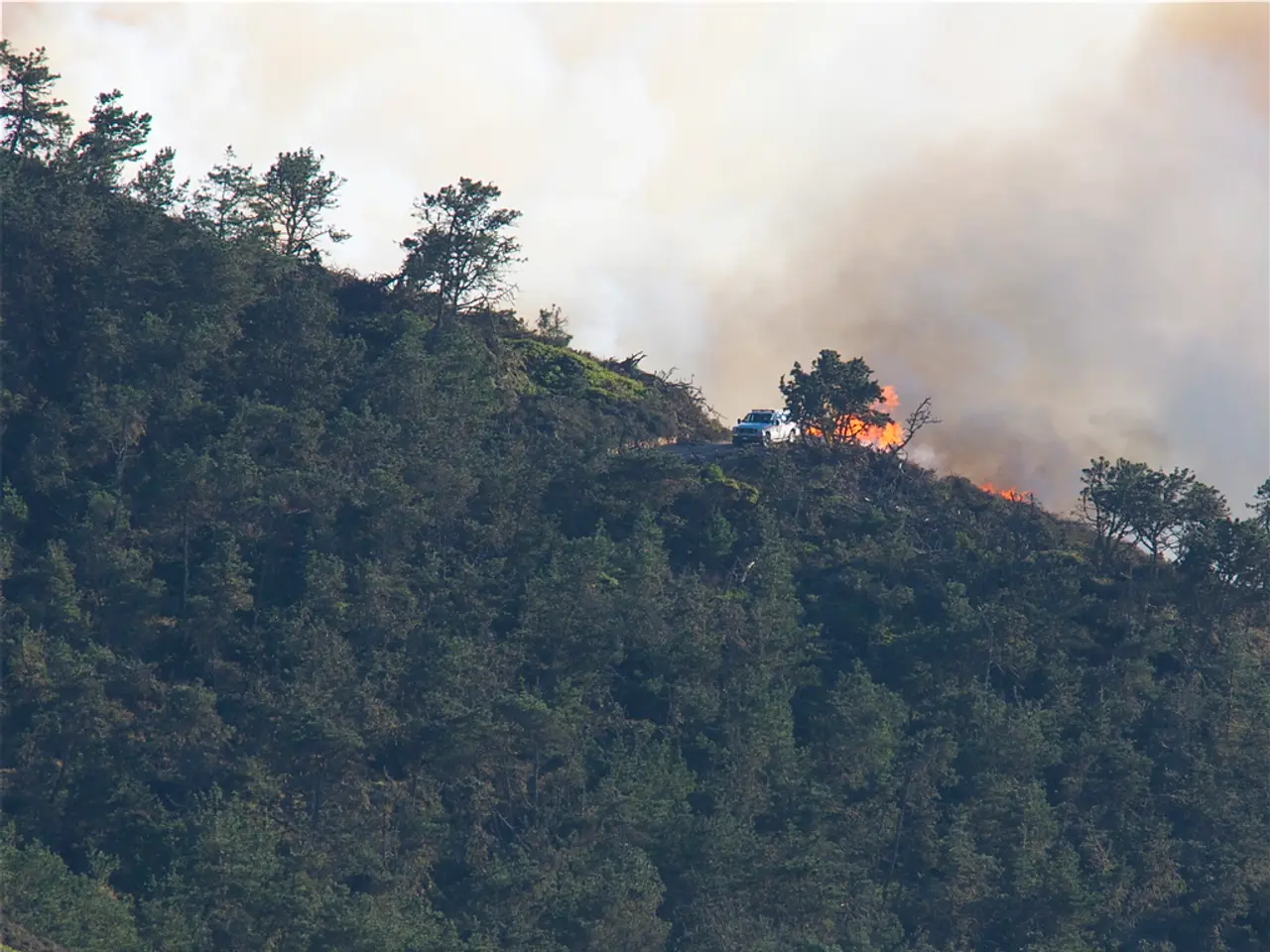Wildfires release smoke, prompting a special air quality advisory in Ontario
Southern Ontario is currently experiencing poor air quality due to smoke from extensive wildfires burning on the Prairies. The smoke, which is expected to persist for much of the weekend, has resulted in elevated Air Quality Health Index (AQHI) values in affected cities, with Toronto and Windsor both at AQHI 7 ("high risk") as recently as Monday, August 4, 2025.
Environment Canada has issued a special air quality statement, warning of poor air quality and reduced visibility in the region. The warning advises people living in Waterloo Region, Wellington County, Brant County, Perth County, and Oxford County to limit time outdoors and consider reducing or rescheduling outdoor activities. Anyone working outdoors for long periods of time could also feel the effects of the wildfire smoke.
The weather office states that some people are more likely to be impacted by the smoke, including people aged 65 or older, pregnant people, infants and young children, and people with pre-existing conditions. Rare, but less common, symptoms include wheezing, chest pain, and severe coughs. People may experience eye, nose, and throat irritation, headaches, or a mild cough due to the wildfire smoke.
The warning does not specify a particular time frame for these effects to persist, but forecasts indicate that degraded air quality caused by wildfire smoke will persist through Tuesday and into Wednesday across large parts of Ontario and other eastern provinces. However, a gradual improvement from west to east is expected as smoke disperses.
The smoke's intensity varies hour by hour due to weather patterns, with a high-pressure system pushing smoke toward the surface at times. As a result, air quality and visibility can fluctuate throughout the day depending on smoke concentration and atmospheric conditions.
Environment Canada advises monitoring air quality and visibility levels in the affected areas to stay informed about the situation. The warning does not mention any specific precautions for pets or livestock in the affected areas.
The wildfire smoke from the Prairies is expected to reduce visibility in southern Ontario this weekend. The spread of smoke from Prairie wildfires is expected to continue into the weekend in southern Ontario.
It's important to note that wildfires are currently active in the Prairies, and the situation is being closely monitored by Environment Canada and other authorities. The public is encouraged to stay informed and follow any advice or instructions provided by local authorities.
[1] Environment Canada. (2025). Special air quality statement for southern Ontario. Retrieved from https://weather.gc.ca/warnings/index_e.html?warnid=1699999
[2] CBC News. (2025). Wildfire smoke from Prairies to affect southern Ontario air quality. Retrieved from https://www.cbc.ca/news/canada/toronto/wildfire-smoke-ontario-air-quality-1.6107635
[3] The Weather Network. (2025). Wildfire smoke from Prairies to affect southern Ontario air quality. Retrieved from https://www.theweathernetwork.com/ca/news/articles/wildfire-smoke-from-prairies-to-affect-southern-ontario-air-quality/
[4] Toronto Star. (2025). Wildfire smoke from Prairies to affect southern Ontario air quality. Retrieved from https://www.thestar.com/news/gta/2025/08/04/wildfire-smoke-from-prairies-to-affect-southern-ontario-air-quality.html
[5] Global News. (2025). Wildfire smoke from Prairies to affect southern Ontario air quality. Retrieved from https://globalnews.ca/news/8343811/wildfire-smoke-from-prairies-to-affect-southern-ontario-air-quality/
- The news about the environmental crisis in Southern Ontario, caused by smoke from Prairie wildfires, has raised concerns in the field of environmental science, as the climate-change-induced wildfires seem to be intensifying and affecting more regions.
- Weather forecasting systems predict that the weather in Southern Ontario will remain impacted by this wildfire smoke, causing reduced visibility and poor air quality, throughout much of the weekend and into early next week.
- Science and news outlets advise people living in affected regions to take precautions, such as minimizing outdoor activities and monitoring air quality levels, to protect themselves from symptoms like irritation of eyes, nose, and throat, headaches, and mild coughs, which are associated with wildfire smoke.








